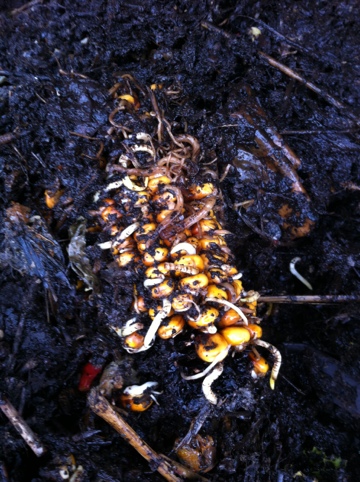So, obviously, it’s a photo-op at a fundraiser.
Two hundred people line up in a U, along the walls of a largish beige hotel conference room. Our bags and purses taken away. No bar. Still there’s a buzz. A third of the room is hidden by navy blue sheets on movable barriers, like privacy curtains from old hospital wards. Behind them, the President of the United States. The President. How often does one meet the President? And he’s waiting to meet us!
(more…)
Tag: moral guidance
-
I met the President for fifteen seconds
-
My hero Grover Norquist
The cost of the new extension of Metro mass transit trains out to Dulles Airport has ballooned and will continue to do so. A well-designed bus system would be as efficient but cost vastly less.
Buses are cheaper than trains, with volume sources for parts and no need for expensive rails. With dedicated lanes, a bus line would never have traffic jams. As in rail stations one could pay on entering the station not the vehicle. Buses could be triple length, like the segmented tractor-trailers that use Western highways, and so much cheaper that we would have many of them. One even has a choice of fuels, from gasoline to natural gas to electric batteries, and improvements can be incorporated quickly, unlike hard-to-adapt custom trains.
Twenty years ago I read an article in Scientific American about Curitiba, Brazil, a city in need of mass transit but with no money for rail. They designed a bus system for city streets, like a trolley car system but with no tracks or overhead power cables. If they could do that twenty years ago we could easily create a nice cheap bus system.
We Americans are too fat’n’happy to be satisfied with such a solution even as we rail against our wasteful national habits. I don’t mean to be a scold though since I was too fat’n’happy to raise the issue.
What if I had become a crank and sent photocopies of the article to every politician in the Metropolitan Area for the last twenty years? Might have come to nothing, at the expense of a little time and a little ego, but might have saved me more money in taxes in the long-run. I’ll never know but I should have tried.
In this spirit that I offer a tribute to Grover Norquist. Norquist is the head of Americans for Tax Reform, which has committed most of the right-wing leadership of the United States to a brutally simple pledge never to raise taxes, ever.
Though he attacks the slightest deviation from his orthodoxy, in interview Norquist is patient and tolerant, unconcerned with petty issues like comfort or dignity. I have seen him face down extraordinary mockery from liberal television satirists without raising his voice or losing his smile. His eyes are on his prize with a focus we would laud if it aimed at world peace or animal cruelty. He is the Dalai Lama of lower taxes.
I say with all sincerity, I hope to be the Grover Norquist of my own life. I hope that I can stare down all the no voices with such unflappability that I will make yes of them. -
Zombie corn
For the past three years I have composted our household plant waste. Coffee grounds, tea bags, kitchen scraps, forgotten vegetables gone bad. Our pet rabbit’s nitrogen-filled litter. We keep 3 gallons a week out of the waste stream, I have given no leaves for autumn collection since I started. Living lighter on the city land.
It has taken three years to fill, since in the compost the plants’ carbon shells dehydrate. All life is dust without water.
The compost is a green ventilated plastic cylinder 3 feet tall and wide. It has no smell when closed. Most people ignore it. Inside is a dense heavy loam, rich with concentrated organic matter. It has a thriving colony of earthworms and in warm weather is active with insects. Molds blow across like storms.
For the autumn Jackie hung dried corn cobs on our door. When the corn gave way to a wreath I broke the cobs and added them to the compost. The cobs were dry, the kernels stiff as cardboard. They had been washed in purple dye. I worried about chemicals but we had bought them at an orchard.
For a long time they didn’t decompose. Were they plastic? Just tenacious. One is now sprouting, nourished in total darkness by our rotting discards. It is a heady thing to see such life, too much for our scaly urban exteriors, when tickle becomes squirm. Perhaps this is the true collective fear that we stroke with zombie stories — the potential in our waste.
Rick Santorum has it wrong to say we should not serve the earth. It is a creation larger than we are and it houses us. It will be here long after we are gone and our kids will need it too. It is more deserving of love.
